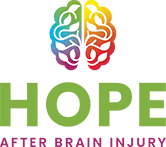Short-term memory loss after a concussion or traumatic brain injury may be associated with vision and sensory impairment.
Short-term memory loss is often a complication for many people who have suffered from a concussion or mild traumatic brain injury. The problem may develop immediately after the head injury or slowly progress over time. Symptoms of short-term memory loss are confusion, inability to recall new information, difficulty retrieving a desired word, trouble remembering simple instructions, and problems with communication. Unfortunately, many patients are told their condition is irreversible.
Once diagnosed with short-term memory loss, patients may enter a rehabilitation program. Rehabilitation for symptoms from traumatic brain injury teaches compensation methods to help patients learn how to navigate through their day more efficiently.
 One major piece of information missing from current testing standards for short-term memory loss: did the patient’s head injury result in a sensory processing problem? Hope may come for some patients if their memory problems are due to an imbalance in visual processing within the brain that is highly treatable. A mild traumatic brain injury may have caused disruption deep within the brain’s sensory pathways. Information we receive through our eyes and ears routes quickly to various parts of the brain’s sensory processing center. Once our brain receives new information, we naturally respond.
One major piece of information missing from current testing standards for short-term memory loss: did the patient’s head injury result in a sensory processing problem? Hope may come for some patients if their memory problems are due to an imbalance in visual processing within the brain that is highly treatable. A mild traumatic brain injury may have caused disruption deep within the brain’s sensory pathways. Information we receive through our eyes and ears routes quickly to various parts of the brain’s sensory processing center. Once our brain receives new information, we naturally respond.
If the vision-related neural paths become injured or disrupted, incoming data can still be stored inside the brain, but we may be unable to retrieve and use the information. One of the more common symptoms of concussion can take form as short-term memory loss. Once a patient’s sensory pathways become synchronized, however, short-term memory problems sometimes improve dramatically.
Some head-injured patients may suffer from vision-related challenges and short-term memory loss or confusion for years. They may never know they have a disruption in their connections among sensory systems, even when examined by traditional eye doctors. For example, one patient who had suffered from a mild traumatic brain injury as the result of a car crash visited two different eye doctors and received a 20/20 correction that complicated matters further. She baffled a team of brain-injury rehabilitation specialists at a major hospital. They were confused by her ability to store the information they gave her, but her inability to retrieve it without a visual prompt. This story reflects one clear example of potential visual dysfunction associated with mild traumatic brain injury.
At the Mind Eye Institute, Deborah Zelinsky, OD emphasizes neuro-optometric rehabilitation testing. Patients from around the world who have suffered from traumatic brain injuries fly in to have Dr. Zelinsky’ s leading-edge team determine all aspects of vision and sensory problems associated with their traumatic brain injuries and learning problems. The Z-Bell Test℠, in addition to other unique neuro-optometric tools for assessment , are giving patients renewed hope for recuperation.

Leave A Comment
You must be logged in to post a comment.